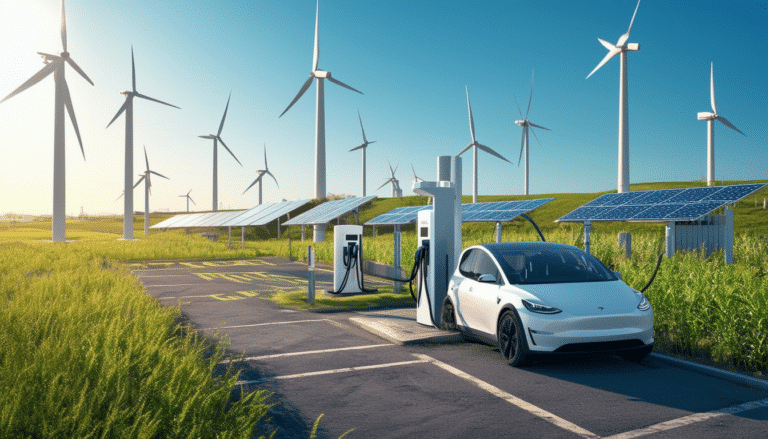How engine temperature affects fuel consumption

The engine temperature plays a crucial role in the performance and fuel efficiency of a vehicle. An engine operating at inadequate temperatures can lead to a significant increase in fuel consumption, affecting not only the driver’s wallet but also the environment. Extreme weather conditions, whether low or high temperatures, directly impact combustion and engine efficiency. Understanding how these thermal variations influence fuel consumption is essential for keeping a vehicle in optimal condition and achieving more economical and sustainable driving.
The engine temperature is a critical factor that significantly influences the fuel consumption of a vehicle. Understanding how temperature variations affect engine performance can help drivers optimize their fuel use and prolong the lifespan of their car. In this article, we will analyze how extreme heat and low temperatures impact engine efficiency and what measures can be taken to mitigate those effects.
The effect of heat on engine performance
When the external temperature exceeds 25 ºC, engine performance begins to be compromised. This phenomenon worsens further from 30 ºC. In extreme heat conditions, the hot air entering the engine contains less oxygen, hindering efficient combustion. As a result, the engine needs to work harder, and, consequently, there is an observed increase in fuel consumption of up to one liter per 100 kilometers.
Heat and air conditioning operation
In hot climates, the vehicle’s air conditioning system also requires additional effort, which increases energy and fuel consumption. This additional expenditure should be taken into account, especially on long trips where air conditioning use is prolonged.
The impact of cold on fuel consumption
Low temperatures also play a significant role in fuel spending. When the temperature approaches 0 degrees, consumption can increase between 10% and 15%. This is because the engine takes longer to warm up, and thus does not reach the optimal temperature for operation immediately.
Extreme cold and engine performance
With sub-zero temperatures, the engine needs to work harder to reach its ideal operating temperature. This not only affects the overall performance of the vehicle but can also cause additional wear on engine components over time. Furthermore, the fuel may become less efficient in combustion due to the density of cold air.
Maintenance to optimize engine performance
Proper maintenance is essential to maximize engine efficiency in the face of temperature variations. The use of the correct engine oil and proper functioning of the cooling system are fundamental to avoid overheating and ensure efficient operation.
Practical tips
Additionally, it is advisable to conduct regular checks on the air conditioning system and ensure that the tires are inflated to the correct pressure, as this also influences consumption. Proper care and maintenance of the vehicle can make a significant difference in fuel performance, even in adverse weather conditions.
Conclusions on fuel consumption and engine temperature
Whether in extreme heat or intense cold conditions, the engine temperature has a direct impact on fuel consumption. By knowing these effects, drivers can take measures to optimize the performance of their vehicles. For more information on how to save fuel and keep your vehicle in optimal condition, you can access specialized websites.
You can visit the following links for more information on fuel savings and automotive tips:
- The secret behind gasoline savings
- Xiaomi launches a new electric car
- Tips to avoid heat problems in the car
- Test of the Moto Morini Calibro
- The challenge of an impossible fuel
The engine temperature plays a crucial role in a vehicle’s performance, directly affecting fuel consumption. When external temperatures are high, beyond 25 ºC, the engine begins to experience a decrease in efficiency. This is because hot air contains less oxygen, compromising the fuel and air mixture necessary for optimal combustion.
On the other hand, in extreme cold conditions, where temperatures are close to 0 ºC, the engine needs additional time to reach its optimal temperature. This extra time can lead to an increase in fuel consumption between 10% and 15%, as the engine must work harder to warm the oil and fluids in the system. Additionally, the viscosity of the oil increases, generating greater resistance to the movement of internal parts.
The use of air conditioning can also influence fuel consumption. In hot climates, this system requires additional energy, thus increasing expenditure. Moreover, the condition of the engine and the maintenance it receives will influence how these temperature variations are managed, making proper maintenance a determining factor in maintaining efficient consumption.
These factors highlight the importance of understanding how temperature affects our vehicle. Proper maintenance, including regular oil changes and cooling system checks, is vital to ensure the engine operates under optimal conditions and thus, minimize fuel consumption. An engine operating within its ideal temperature range not only saves fuel but also prolongs the vehicle’s lifespan.



